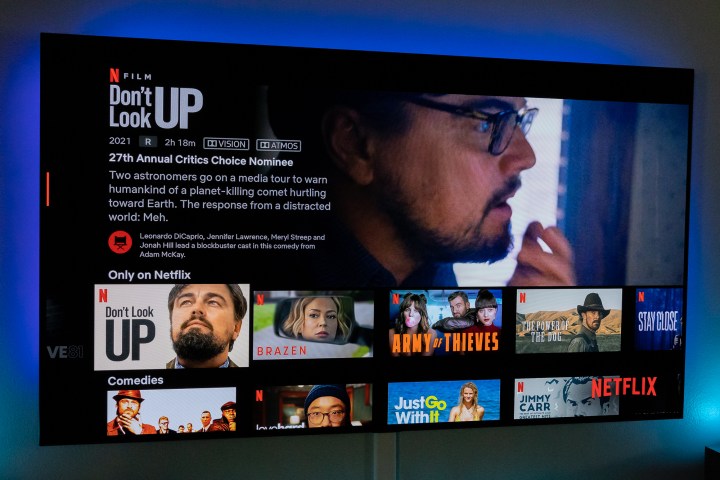On the day that it reported the loss of subscribers for the first time in more than a decade, Netflix has revealed it is considering an ad-supported tier for a lower subscription fee.
Netflix co-founder and co-CEO Reed Hastings made the revelation during a conference call with investors on Tuesday, April 19.

Hastings acknowledged that his opposition to an ad-supported tier has been well documented, but said a strong belief in consumer choice could, after all, persuade him to backtrack. Witnessing the exodus of 200,000 subscribers in the three-month period ending March 31 may also have nudged him toward accepting the idea.
“Those who have followed Netflix know that I have been against the complexity of advertising and a big fan of the simplicity of subscription,” Hastings said. “But as much as I am a fan of that, I am a bigger fan of consumer choice, and allowing consumers who would like to have a lower price and are advertising-tolerant to get what they want makes a lot of sense.”
However, Hastings added that an ad-supported service wouldn’t likely land for at least a year, meaning that for now subscribers are stuck with paying $10 a month for the basic tier, $15.50 for the standard tier, and $20 for the premium service.
Rivals such as Hulu and Peacock already offer an ad-supported option, while Disney+ recently announced it too will be adding an ad-supported tier for U.S.-based customers later this year, followed by an international rollout in 2023. Amazon Prime, meanwhile, bundles lots of other services with its own video streaming offering, with the entire package currently costing $139 per year. Apple TV+ has no ad-supported plan, with subscribers required to pay $5 per month.
Hastings also said on Tuesday that Netflix expects to lose a further 2 million subscribers in the current quarter. He put the losses down to a number factors such as increased competition from rivals, the war in Ukraine, and password sharing, a practice that Hastings said some 100 million households are currently engaged in.
He added that a surge in signups during the pandemic had “obscured the picture” as people begin to go out more following the vaccine rollout.
Whether Netflix’s proposed ad-supported service will be a success depends largely on how much the company decides to charge, as well as its ability to maintain an attractive library of content that beats, or at least matches, that offered by its competitors.
Planning to cancel Netflix? Here’s how to do it. Alternatively, if you’re a fully committed Netflix subscriber and looking for stuff to watch, check out Digital Trends’ top 50 movies for April.


